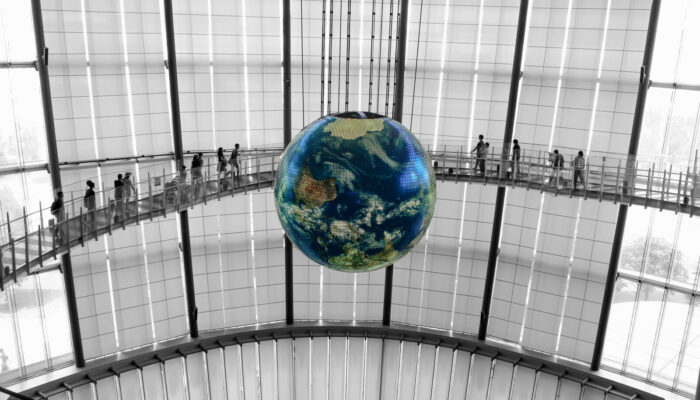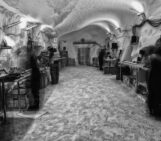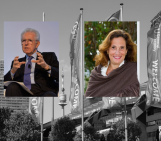
This blog summarises The Anti-Autocracy Handbook: A Scholars’ Guide to Navigating Democratic Backsliding. This handbook provides practical strategies for academics facing politically hostile environments and offers a framework to protect scientific integrity and academic freedom without compromising personal safety.
Around the world, we are witnessing a disturbing rise in democratic backsliding, and academia is increasingly in the crosshairs. From the censorship of climate data and restrictions on international collaborations to the influence of AI on research ethics, the global academic ecosystem is under pressure.
In response, an international group of researchers, led by psychologist and disinformation expert Stephan Lewandowsky, has created a new resource: The Anti-Autocracy Handbook. It serves as a call to action, a toolbox, and a survival guide for scholars in politically hostile environments. This project unites researchers across disciplines and countries in a shared commitment to defending academic freedom and scientific integrity.
The handbook offers a powerful, pragmatic response to growing authoritarianism: take action, but do so wisely, strategically, and in line with your personal risk. It provides strategies for communicating with integrity, resisting politicization, and protecting the infrastructure of evidence-based policymaking. Whether you live in a stable democracy or face daily threats under a repressive regime, this guide offers a clear framework for defending democratic norms without risking burnout or undue danger.
This handbook outlines how modern autocracies often operate using a familiar pattern, what the authors call the “3 Ps”:
- Populism: framing leaders as the sole legitimate voice of “the people” (“man of the people”) against an ostensibly corrupt or disconnected elite.
- Polarization: deepening social and political divides, making consensus and compromise almost impossible.
- Post-truth: undermining facts, institutions, and expertise, replacing them with conspiracy, doubt, and misinformation.
If everybody always lies to you, the consequence is not
that you believe the lies, but rather that nobody believes
anything any longer … And with such a people you can
then do what you please. – Hannah Arendt (Handbook, p.20.)
No need to prove that these tactics create fertile ground for repression, and that the scholars are often among the first to feel the consequences. The Trump administration in the US is used as a key example, highlighting how research on climate change, public health, and minority communities was targeted for defunding or suppression within weeks of Donald Trump, the president of the U.S., taking office. But the threats are not unique to one country. Whether it’s surveillance of researchers in China or attempts to control curricula in parts of Europe (political interference has been documented in Belgium, Denmark, Germany, the Netherlands, and Sweden), the trend towards autocracy is global and accelerating. There are also examples of how autocratization imperils health. In former democracies that have reverted to autocracy. In Honduras, Nicaragua, Turkey, and Venezuela, the life expectancy has declined by an average of 2 percent compared to countries that preserved their democracy.
Risk levels and adequate responses
The handbook employs a risk-based model that enables academics to act strategically and in solidarity. It provides countermeasures based on an individual’s personal risk level, outlining how psychology, strong communities, and individual actions can all be part of the response.
- Low-risk scholars: Leveraging your platform
If you find yourself in a relatively safe position, as a citizen in a democratic country, a senior professional, or with strong institutional backing, you have a powerful platform. Your role is to use that power to advocate for others and protect the scientific community. This involves more than just speaking out; it’s about actively engaging with the world around you. You can challenge disinformation by publicly naming lies and upholding facts, not only on social media but also through op-eds and community events like “Science Slams.” By engaging with local media and representatives, you can connect your scholarship directly to the public. It’s also crucial to protect the long-term infrastructure of academia. from labs and funding to publishing independence, by getting involved in civic institutions and encouraging dialogue with young people, who are most vulnerable to ideological manipulation. - Medium- and high-risk scholars: Protecting yourself and your work
For those in more vulnerable positions—perhaps on a visa or in a non-permanent role—resistance requires both caution and solidarity. The focus shifts to protective measures and ethical innovation. You can support imperiled research and researchers by donating, amplifying their work, or collaborating across disciplines. Building safe spaces is essential; this means creating private communities where shared values are affirmed, sustaining courage and clarity. You can also innovate ethically by adjusting your research methods to protect vulnerable participants and developing safer data collection tools. In environments where repression thrives on silence, it’s vital to document everything, record censorship, rights violations, or disappearances, and publish it anonymously if needed. If you’ve learned how to navigate risk, sharing that knowledge with others becomes a powerful act of solidarity.
In highly repressive environments, the goal shifts: stay safe while preserving autonomy. Resistance may look quieter, but it is no less significant.
- Discretion is key: Guard against informants and be mindful about whom to trust.
- Engage in micro-resistance. Even small acts, asking a question, delaying action, and pausing before complying, protect your agency.
- Build trust carefully: Listen, observe, and strengthen quiet networks. You are not alone.
- Support from within: Alert your department heads or administration if you expect to be targeted and seek their backing early.
- Defy through values: Practicing small, deliberate acts of integrity that build resilience and signal to others that resistance is possible.
- Scholars at extreme risk are offered guidance on preserving data, creating distributed archives, and building networks of solidarity. You may be at extreme risk if you are from a minoritized community or are in the country on a temporary visa with a temporary job.
- Protect yourself first: When your freedom, livelihood, or safety are on the line, survival comes first—but even here, resistance can take form.
- Connect with “underground” networks such as safe chat apps. Just like in history’s darkest moments, there are still safe paths and people willing to help.
- Seek solidarity: Organizations like Scholars at Risk and the Academic Freedom Index are lifelines.
Science for Policy in an Age of Authoritarianism
The handbook is also a reminder that scholarship is more than just knowledge production; it is a public good. When authoritarian regimes rewrite history, erase evidence, and silence dissent, academics can serve as chroniclers and witnesses. That’s why the handbook urges scholars to document and share their stories, whether publicly or anonymously.
For those in the geosciences, the relevance of this handbook is clear. From climate change to environmental justice, many of our fields are directly affected by political narratives and misinformation. This is not only about protecting ourselves—it’s about safeguarding the conditions that make science possible. But when authoritarian tendencies rise, this evidence-policy link is often the first to be severed. Facts become inconvenient, scientific advice is sidelined or manipulated, and experts could be discredited or even harassed. In recent years, the epistemic authority of science has already beem challenged, causing concerns about low public trust in scientists.
The Anti-Autocracy Handbook isn’t just about academic self-preservation; it’s about protecting the critical interface between science and policy. In democratic societies, this bridge is vital: evidence informs decisions, scientists advise policymakers, and complex challenges—like climate change, biodiversity loss, or public health—are met with informed action. For geoscientists and others whose work directly informs public policy—from climate modelling to natural disaster preparedness—this shift can be devastating. It not only undermines trust in science, the effectiveness of science communication, and the promise of strategic engagement between researchers and policymakers, but also risks lives and ecosystems. That’s why The Anti-Autocracy Handbook is an essential resource for those working at the intersection of science and society – it helps scientists continue to serve the public interest, even when political conditions are hostile. Authoritarian regimes rely on silence, fragmentation, and fear. This handbook makes one thing clear: you don’t have to be loud to be effective, and you don’t have to be fearless to be brave. Whether you’re signing a petition, organising a workshop, supporting a colleague, or simply refusing to lie, each act, however small, matters. In a world where freedoms are slowly eroded rather than suddenly stolen, the best defense of democracy is to live it, speak it, and defend it every day—within classrooms, communities, and institutions.
In the face of accelerating climate impacts—rising sea level, coastal erosion, and extreme weather worldwide—it’s no surprise that many people, especially youngsters, feel powerless. Climate anxiety has emerged as a growing concern as the effects of climate change become increasingly evident. But paralysis is not an option. As highlighted in Sarah Connor’s reflections at ECCA2025, the key to overcoming the overwhelm to action, the ‘move forward’ lies in education and empowerment. We must replace fear with understanding, and passive concern with informed action. That means demystifying the tools already at our disposal—from satellite data and Earth observation to community-led urban adaptation. Climate solutions aren’t abstract—they exist, and they are actionable at all levels: governments, cities, and individuals. Educating people about these solutions—how they work, who implements them, and how to get involved—is what transforms anxiety into agency. This is where adaptation becomes real. This is how we move beyond powerlessness.
Let this handbook serve as a step toward that clarity: not to minimise the scale of the challenge, but to highlight the paths through it. We encourage all members of the EGU community to explore this resource, reflect on their own role, and share it with their networks.





